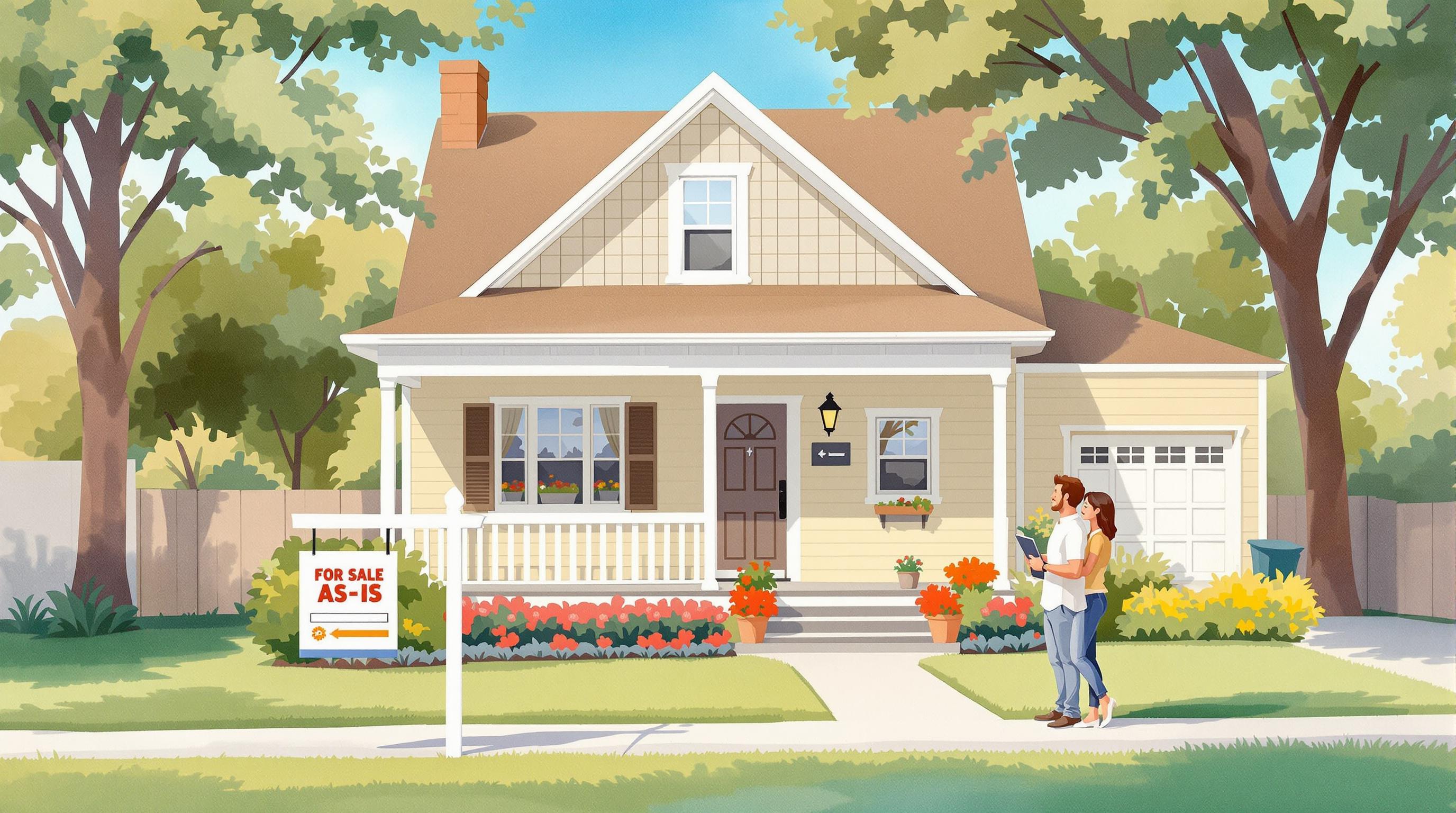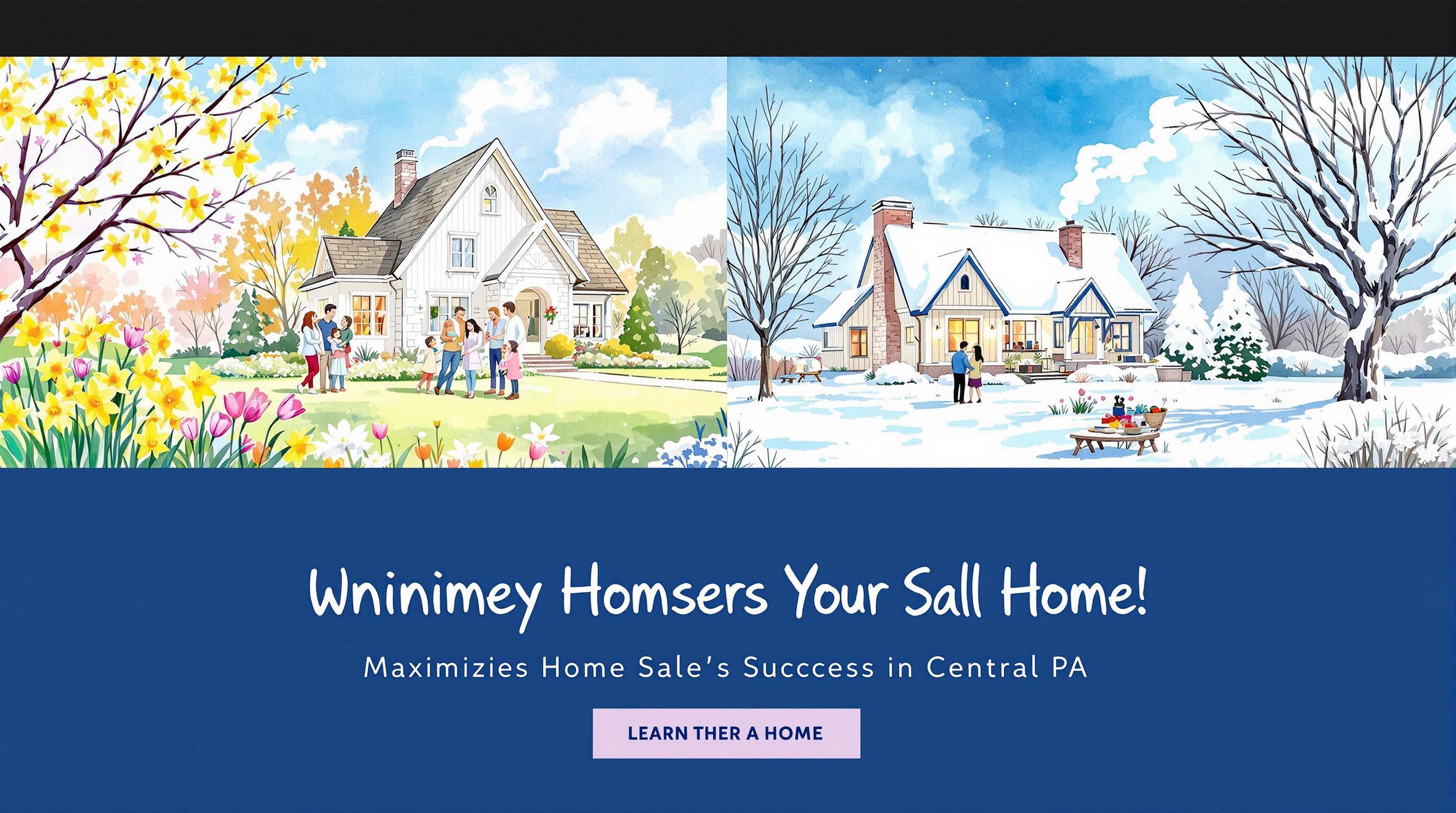Harrisburg is a standout market for homebuyers in 2025. With a median home price of $145,000 - 58% below the national average - and a price-to-income ratio of 2.6, it's an affordable option for first-time buyers and investors alike. Homes sell fast, often in just 7 days, and nearly 40% sell above the listing price. Buyers must act quickly and choose the best financing method to stay competitive.
Here’s a breakdown of your options:
- Conventional Loans: Popular but require good credit (minimum 620), stable finances, and a down payment starting at 3%.
- Cash Offers: Fast (close in 7–14 days) and eliminate loan-related delays but require significant liquid assets.
- Government-Backed Loans: Programs like PHFA and Keystone Advantage offer financial assistance and lower barriers for eligible buyers.
Key Stats:
- Median home price: $145,000 (May 2025)
- Homes sold above list price: 39% (Jan 2025)
- Average closing time: 7 days (cash), weeks for loans
Quick Comparison:
| Factor | Conventional Loans | Cash Offers | Government-Backed Loans |
|---|---|---|---|
| Speed | Weeks | 7–14 days | Slower due to requirements |
| Eligibility | High credit, finances | Liquid assets | Specific criteria |
| Cost | Interest rates apply | No loan fees | Assistance programs |
| Flexibility | Fixed terms | "As-is" purchases | Various options available |
Deciding between these options depends on your financial situation, timeline, and goals. Harrisburg's market offers opportunities, but preparation is key.
Pennsylvania's $24,000 Home Buyer Credit | Keystone Forgiven In Ten Years KFIT
1. Traditional Financing Methods
Conventional loans remain one of the most popular choices for buyers in Harrisburg. These loans are not backed by federal insurance, meaning approval hinges entirely on your creditworthiness and financial stability.
Eligibility Requirements
If you're looking to secure a conventional loan in Pennsylvania, you'll need a minimum FICO credit score of 620. Lenders also evaluate your debt-to-income ratio to ensure your monthly housing expenses stay within a manageable portion of your gross income. Beyond that, you'll need to prove you have enough income to handle both housing expenses and other monthly debts. Whether you're financing a primary residence, a vacation home, or an investment property, these same standards apply. This thorough evaluation process can extend the approval timeline.
Speed of Process
Compared to cash transactions, traditional financing tends to take longer. With rising interest rates, conventional loans often require several weeks for approval, whereas cash transactions can close in just a few days. In Harrisburg's fast-paced real estate market, these delays can sometimes lead to missed opportunities. However, well-prepared and structured financed offers are still attractive to many sellers. Choosing a financing method that aligns with both your financial situation and the market's urgency is crucial.
Cost and Affordability
Conventional loans come with various costs that impact affordability. Down payment requirements vary depending on the property's purpose and the loan type. For example, a fixed-rate mortgage for a primary residence might require as little as 3% down, while investment properties often demand at least 15%.
| Property Type | Fixed-Rate Mortgage | Adjustable-Rate Mortgage |
|---|---|---|
| Primary Residence (1 Unit) | 3% Down Payment | 10% Down Payment |
| Second Home (1 Unit) | 10% Down Payment | 20% Down Payment |
| Investment Property (1 Unit) | 15% Down Payment | 25% Down Payment |
Closing costs in Pennsylvania typically range from 2% to 5% of the purchase price. For a home priced at the state’s median value of $268,984, this means closing costs could fall between $5,380 and $13,449. Additionally, the maximum loan-to-value ratio for conventional loans ranges from 80% to 97%, depending on the property's appraised value or sale price.
Flexibility
Conventional loans offer a range of options to suit different needs. You can choose between 15-year and 30-year terms, with shorter terms reducing total interest paid and longer terms offering lower monthly payments. These loans also adapt to various investment strategies, whether you're buying a single-family home, a rental duplex, or a second home. Down payment requirements adjust based on the property type and its intended use, allowing you to align your financing with your financial goals.
Pennsylvania's economic stability further supports access to conventional financing. With a state unemployment rate of 3.4% - lower than the national average of 4.1% - and a per capita personal income of $68,945, the conditions remain favorable for qualified buyers.
2. Cash Offers
Cash offers have become a compelling option in Harrisburg's real estate market, offering buyers a way to sidestep traditional financing hurdles. By eliminating the need for mortgage approvals and bank financing, buyers can secure properties much faster - a critical advantage in a competitive market.
Speed of Process
One of the biggest perks of cash offers is how quickly they can close. Transactions can wrap up in as little as a week. Without the delays caused by loan underwriting or mountains of paperwork, cash buyers can act fast - an essential factor when dealing with distressed properties or urgent situations like pre-foreclosure sales or sellers facing unexpected life changes.
Cost and Affordability
Cash offers often translate into meaningful cost savings. For starters, buyers avoid appraisal requirements, which means there’s no risk of a deal falling through if the property doesn’t appraise at the agreed-upon value. Cash buyers may also cover closing costs, potentially saving up to 11% of the sale price. Additionally, purchasing a property "as-is" can cut out the need for costly repairs or upgrades before closing.
Cash buyers also have room to negotiate. For example, some investors may offer around 67.5% of a property’s after-repair value, while others might go as high as 90% to 100% of the fair market value after factoring in service fees and repair costs.
Flexibility
When it comes to flexibility, cash offers shine. Buyers aren’t tied down by the restrictions that come with traditional financing. This freedom allows them to pursue properties with title issues, tax complications, or major repair needs. Sellers also appreciate the lack of financing contingencies, which makes the transaction process smoother and more predictable.
In Harrisburg’s current market, there’s room for negotiation. As of February 2025, 53% of homes sold below asking price. With a median home price of $245,590 - an 8% jump from the previous year - cash buyers who can act quickly are well-positioned to secure competitive deals.
Eligibility Requirements
Unlike traditional financing, cash offers don’t rely on credit scores, debt-to-income ratios, or employment verification. The key requirement is having enough liquid funds to cover the purchase price, closing costs, and any immediate repairs or updates. Buyers must ensure their funds are accessible and well-documented, as banks may request proof of funding for larger transactions.
With cash offers offering clear advantages, the next section will dive into the government-backed loan options available in Harrisburg.
sbb-itb-7fa5722
3. Government-Backed Loan Programs
After looking into traditional financing and cash offers, it's worth considering government-backed programs, which provide additional support for specific groups of homebuyers.
In Harrisburg, government-backed loan programs can make the dream of homeownership more attainable. A key player here is the Pennsylvania Housing Finance Agency (PHFA). Since 1982, PHFA has helped 183,500 families with over $15.4 billion in funding for affordable homeownership. Instead of handling applications directly, PHFA works through a network of lenders and brokers. They also service the mortgage for its entire term and offer free homebuyer counseling through approved agencies.
Eligibility Requirements
Each government-backed loan program has its own criteria, which often differ from traditional financing. Some of the key programs available in Harrisburg include:
- PHFA Loans: For borrowers with a FICO score under 680, completing a homebuyer education course is a must before closing. These loans are compatible with FHA, VA, RD, or conventional loan types.
- Keystone Advantage Assistance Loan Program: Requires a minimum credit score of 660, limits liquid assets to $50,000 after closing costs, and has a minimum loan amount of $500.
- Keystone Forgivable in Ten Years Loan Program (K-FIT): Also requires a 660 minimum credit score and the same $50,000 asset limit. It offers assistance of up to 5% of the purchase price or appraised value, with forgiveness at 10% per year over a decade.
- Access Downpayment and Closing Cost Assistance Program: Tailored for buyers with disabilities or households with a disabled member. Household income must not exceed 80% of the statewide median.
- HOMEstead Program: Available for first-time buyers, with income and purchase price limits varying by county.
Locally, the Dauphin County First-Time Homebuyers Program provides up to $3,000 in loan assistance to eligible buyers, requiring a personal investment of at least $1,000.
Cost and Affordability
These programs aim to reduce the financial burden of buying a home:
- The K-FIT Program offers up to 5% of the purchase price or appraised value, with forgiveness over ten years.
- The Keystone Advantage Program provides up to 4% of the purchase price (or $6,000, whichever is less) as a second mortgage with 0% interest, amortized over ten years.
- The Access Program grants up to $15,000 in no-interest assistance for downpayment and closing costs.
- The HOMEstead Program offers up to $10,000 in no-interest assistance, forgiven at 20% per year over five years.
Dauphin County adds another layer of support with its $3,000 loan assistance for first-time buyers. The Dauphin County Department of Community & Economic Development highlights the program’s impact:
"The First-Time Homebuyers Program is an excellent tool to help county residents achieve affordable home ownership and improve the quality of life for themselves and their families."
Homebuyers can also save through Mortgage Credit Certificates (MCCs) from PHFA, which reduce federal income tax liabilities and allow borrowers to qualify for larger loans.
Speed of Process
Government-backed loans often take longer to process than conventional ones due to additional requirements and inspections. However, getting pre-approved can help speed things up, as much of the paperwork is completed upfront. Online lenders tend to process applications faster than traditional banks or credit unions. The overall timeline depends on the lender's process, how quickly borrowers provide the necessary documents, and the timing of fund disbursement. While the process may take more time, these programs are structured to meet a variety of buyer needs.
Flexibility
These programs stand out for their flexibility. For instance, the HFA Preferred™ (Lo MI) loan doesn’t require buyers to be first-timers or adhere to purchase price limits, though income limits still apply. Similarly, the Keystone Government Loan program removes income, purchase price, and first-time buyer restrictions entirely.
However, there are pairing limitations. Some programs, like the Access Modification Loan Program, may only be paired with specific options. Even so, these programs accommodate a range of loan types - including FHA, VA, RD, and conventional loans - offering buyers several routes to homeownership while maintaining the advantages of government support.
Advantages and Disadvantages
When it comes to financing your Harrisburg home, each option comes with its own set of pros and cons that can influence your experience.
Traditional Financing offers a sense of stability and predictability, particularly with its competitive interest rates. As one industry expert highlights:
"Banks typically offer structured loan plans that feature lower interest rates. However, they require extensive paperwork and prioritize creditworthiness."
The downside? The approval process can be lengthy and competitive. Borrowers need a strong credit score, stable financial history, and sometimes even collateral to qualify. These requirements can make traditional loans less accessible for some buyers.
Cash Offers, on the other hand, are all about speed and leverage. While financed transactions can take anywhere from three to six months to close, cash deals often wrap up in just seven to fourteen days. This quick turnaround can lead to savings - studies suggest cash buyers often pay about 10% less than those using a mortgage, whereas buyers with strong financing profiles may end up paying about 6% more. Michael Reher, Assistant Professor of Finance at the Rady School of Management, explains:
"When sellers accept a mortgage offer, it comes with risk... We find sellers are willing to leave money on the table to avoid the risk."
However, cash offers require a significant amount of liquid assets, which can limit your purchasing options. Additionally, individual cash buyers may struggle to compete with larger cash-buying entities.
For those needing extra financial help, government-backed programs can make homeownership more accessible and affordable. For instance, the Pennsylvania Housing Finance Agency (PHFA) has supported about 183,500 families since 1982, providing over $15.4 billion in funding. Programs like PHFA’s K-FIT offer up to 5% of the purchase price, which is forgiven gradually over ten years. But these programs aren’t without their hurdles - they often come with strict eligibility criteria. For example, PHFA requires homebuyer education courses for borrowers with FICO scores under 680 before closing.
Here’s a quick comparison of the key factors for each option:
| Factor | Traditional | Cash Offers | Government Programs |
|---|---|---|---|
| Speed | 3‑6 months | 7‑14 days | Longer due to additional requirements |
| Eligibility | High credit and stable finances | Substantial liquid assets | Specific criteria (credit, income, location) |
| Cost | Competitive interest rates | About 10% lower purchase price | Financial assistance (e.g., up to 5% help) |
| Flexibility | Fixed repayment schedules | Often sold "as-is" | Various program options available |
| Risk | Risk of loan denial | Capital is tied up | Strict guidelines may apply |
If speed and simplicity are your priorities, a cash offer might be the way to go. For those seeking predictable monthly payments and long-term affordability, traditional financing could be a better match. And if you’re navigating unique financial circumstances, government-backed programs might provide the support you need. Weigh your credit profile, resources, and timeline to determine which option aligns best with your goals in Harrisburg.
Conclusion
When deciding on financing, it's essential to consider your financial situation and the current market conditions. With Harrisburg's median home price at $165,000 - far below the national average of $407,500 - there are plenty of affordable opportunities in this competitive market.
In January 2025, 39% of homes in Harrisburg sold above their list price, with properties spending a median of just 38 days on the market. For buyers who can meet the 20–25% down payment requirement, traditional financing remains a reliable option. Meanwhile, government-backed loans like FHA 203k can be a smart choice for those looking to finance both the purchase and renovation of a home. These trends highlight the importance of acting quickly in Harrisburg's dynamic real estate market.
With mortgage rates hovering around 7% and Zillow predicting a 3.4% rise in home values by the end of the year, timing your purchase strategically could make a big difference.
Numbers aside, understanding local factors can be just as important. Familiarity with zoning laws, neighborhood trends, and market cycles can provide a significant edge. Local experts, such as those at Central PA Realty, offer free consultations in Cumberland, Dauphin, and nearby counties, providing personalized advice to help you navigate Harrisburg's fast-paced market.
Ultimately, your financing decision should align with your timeline, available capital, and risk tolerance. Harrisburg's real estate market rewards buyers who are prepared with a solid plan and a deep understanding of local conditions.
FAQs
What are the pros and cons of accepting a cash offer versus using traditional financing when buying property in Harrisburg?
Choosing a cash offer in Harrisburg’s real estate market comes with some clear perks. For starters, cash deals often mean quicker closings, fewer closing costs, and less chance of the deal falling apart due to financing hiccups. These factors can make the whole process more straightforward and predictable for everyone involved.
That said, there are trade-offs. Cash offers tend to come with lower sale prices, which might not be ideal for sellers looking to maximize their profit. Plus, sellers may find they have less room to negotiate. On the flip side, buyers using traditional financing can typically offer higher prices, but the process can drag on longer and may include more contingencies.
In the end, the right choice depends on your priorities - whether you value speed and simplicity or are focused on getting the best price and more flexibility in negotiations.
How do programs like PHFA and Keystone Advantage help make buying a home in Harrisburg more affordable?
Programs like the PHFA Keystone Advantage aim to make buying a home more affordable by providing financial help with down payments and closing costs. Eligible buyers can receive up to 4% of the purchase price (capped at $6,000) through this program. The best part? It’s structured as a loan with 0% interest, repayable over 10 years.
This kind of support can make a big difference, especially for first-time buyers or those with low to moderate incomes. If you're considering purchasing a home in Harrisburg, programs like this could help lower those upfront costs and make homeownership feel more within reach.
What should I consider when choosing between a conventional loan and a government-backed loan for buying a home in Harrisburg?
When choosing between a conventional loan and a government-backed loan in Harrisburg, it’s crucial to consider a few important factors. Government-backed loans, like FHA loans, are often designed with more lenient requirements, making them appealing for buyers with lower credit scores or smaller savings. These loans typically come with lower down payment requirements and may offer competitive interest rates.
Conventional loans, on the other hand, are better suited for buyers with stronger financial profiles. They generally require higher credit scores and larger down payments but can provide more favorable terms. Additionally, conventional loans might be a better fit for those looking to purchase higher-priced homes that exceed the limits set by government-backed programs.
Your decision should be based on your financial situation, including your credit score, available savings, and eligibility for specific programs. Consulting a local mortgage expert can help you identify the best option for your needs and navigate the Harrisburg housing market effectively.



